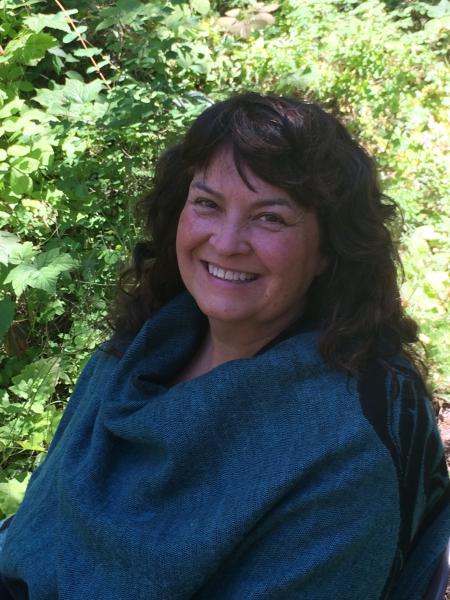 Chronic pain impacts people of all ages, genders and from all communities, but when pain is complicated by trauma and systemic racism, effective health care can become particularly difficult to access. To begin addressing this challenge, Pain BC recently launched a program called Making Sense of Pain. The eight-week program is designed to provide equal opportunities for education and support to people who might otherwise face exclusion or stigma when accessing pain care.
Chronic pain impacts people of all ages, genders and from all communities, but when pain is complicated by trauma and systemic racism, effective health care can become particularly difficult to access. To begin addressing this challenge, Pain BC recently launched a program called Making Sense of Pain. The eight-week program is designed to provide equal opportunities for education and support to people who might otherwise face exclusion or stigma when accessing pain care.
The program is offered in two formats: one that is culturally relevant and safe for Indigenous people and another that is geared towards people with pain of all backgrounds and ethnicities who experience stigma due to poverty, substance use, mental health challenges and trauma. Elder Kathryn McCooeye facilitates the Indigenous program in Nelson, BC, in conjunction with Dr. Rodica Janz, a physician who specializes in chronic pain.
Kathryn is an Elder of Huron, Celtic and African ancestry who was raised in the Gitksan territories in northwestern BC. During her formative years, she was honoured to be fostered by two hereditary chiefs from that nation and later went on to study traditional Indigenous healing practices. She also has personal experience living with pain. Elder Kathryn was interested in the Making Sense of Pain program because she saw a need for a program in her community that incorporated Indigenous teachings on health and healing.
“I’m interested in helping people look at pain and medicine through an Indigenous lens,” Elder Kathryn says. “There is a lot of alignment with the Western model of pain science [which understands pain to be impacted by biological, social and psychological factors] and Indigenous science and medicine practices, which views all health conditions as rooted equally in mental, physical, emotional and spiritual aspects.”
The Making Sense of Pain – Indigenous program is focused on being welcoming and accommodating to the people it serves: Each session provides a communal meal, participants are provided with a transportation subsidy, and there are no minimum attendance requirements to remain enrolled in the program.
“The meals that were provided were beautiful,” Elder Kathryn says. “We always made sure to take the time to connect over a meal so we could talk and laugh with one another. Laughter is very important in our culture; it’s an important way to connect and to get through hard things, including pain.”
Providing culturally safe and relevant pain care specifically for Indigenous peoples is important because many Indigenous people have valid fears about interacting with the Canadian health care system. Indigenous people in Canada not only live with direct or inter-generational trauma from colonialism and the residential school system, but many also continue to experience stigma and discrimination when accessing health care and other public services today.
“There are two Canadas,” Elder Kathryn says. “The one white settlers enjoy and the one marginalized populations, such as Indigenous people, endure. The more we create opportunities to work together, the closer we are to creating a Canada that everyone can enjoy."
That shared experience is something that Elder Kathryn addresses in the Making Sense of Pain sessions she facilitates in partnership with Dr. Janz.
“We do our best to acknowledge our fears, sit with them, and we teach the participants tools to best work through them,” she says. “That’s part of the healing.”
Throughout the sessions, Elder Kathryn says she was excited to watch the change in participants' lives and health. She reports that many people described feeling significantly less pain during the sessions – some even feeling none at all – and that many continued to feel better, more hopeful, and more functional as they continued their lives outside of the program.
“Hope is a very fragile thing and it's often absent from people living with pain,” she says. “It was wonderful to watch people’s eyes light up as they regained some hope.”
Elder Kathryn is now sharing her knowledge and experience with the Making Sense of Pain – Indigenous program to help Pain BC improve the curriculum and deepen its cultural relevance so that future iterations of the program will be even more meaningful and effective. Further to that, Elder Kathryn continues to explain, “Our traditional Indigenous sciences and medical knowledge are older than Chinese medicine; in fact, they’re older than the pyramids. It’s vital that Indigenous participants have an opportunity to embrace this cultural knowledge, which not only helps to address their physical pain, but also helps them heal deep spiritual and psychological wounds, and embrace positive cultural identity.”
“I was very inspired to see that Pain BC would take on a project to specifically address the needs of Indigenous people – it does my heart good,” Elder Kathryn says. “It takes humility to open your hearts and minds [to Indigenous healing modalities] and I continue to be impressed by how open people at Pain BC are to feedback, to learning more and to doing more.”
For further cultural information about the Nelson Making Sense of Pain program, feel free to contact Elder Kathryn McCooeye through her website at fournations.net. This program was made possible by funding from the Vancouver Foundation, the Ministry of Health and the Overdose Emergency Response Centre. Click here to find out more about Making Sense of Pain.